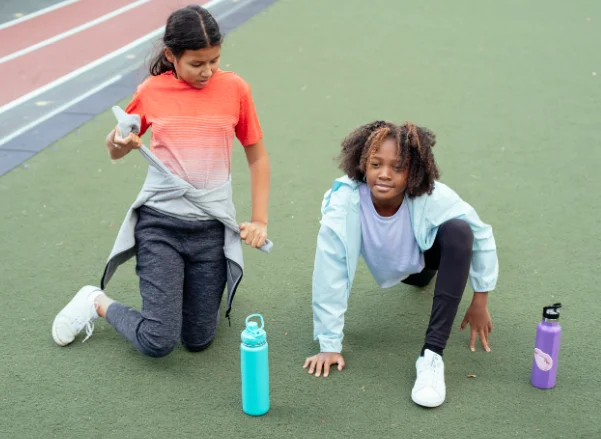The school year is wrapping up, and you may notice your kids losing motivation to learn during summer break. This is a common problem that can lead to lost progress and make it harder to return to school in the fall.
Fortunately, it’s possible to let your kids enjoy their school-free months while still keeping them mentally engaged. Here are five ways to prevent learning loss and help your kids maintain their study skills over summer break.

Consider Online Tutoring
Remember the old saying, “An ounce of prevention is worth a pound of cure”? This idiom is so accurate when it comes to summer learning loss. It’s better to help your child retain study skills over the summer than try to get those skills back at the end of the break. The problem many parents run into is that they don’t know how to encourage their children to stay motivated to learn. That’s one reason a tutoring service can be so valuable.
Having your child learn from an online tutor is a great way to help them to remain mentally sharp during summer break. It’s common for kids to be more willing to learn from teachers than parents. So if your child puts up roadblocks when you attempt to teach them, online tutoring may be the perfect solution. This approach is flexible for busy families, so you don’t need to worry about it messing up your vacation plans.
Engage in Educational Outings and Activities
A great way to keep your child mentally engaged during summer break is to sneak learning opportunities into your outings. If you do this effectively, your child will have so much fun they won’t realize they’re learning. Check to see what educational opportunities are available in your area. Many cities have free or low-cost museums, planetariums, and other educational venues that you can check out.
Other mentally stimulating activities include hunting fossils, planting a garden, and identifying animal tracks. You might also be able to arrange tours with nearby farms or greenhouses to learn how they operate. Even a day at the swimming pool can become a learning opportunity. Have your child calculate how many strokes it takes to swim across the pool or how much change they need to buy a snack. These types of activities are much more brain-engaging than looking at screens all summer long.
Help Them Set Up a Snack or Lemonade Stand
As a kid, did you ever run a lemonade or snack stand during the summer? If so, you know firsthand how effectively it can challenge your mathematical abilities. If you want your child’s math skills to stay well honed this summer, help them set up a lemonade stand. Get them involved in figuring out how much they should charge per cup to make a profit. To do this, they’ll first need to determine how much all the ingredients and supplies cost.
Once your child establishes how much to charge for each cup of lemonade or bag of caramel corn, the math exercises don’t end there. They’ll also need to figure out how to give customers the correct change. Give them a calculator to check their work, but encourage them to do the calculations in their head or on paper first.
Read Together
Reading is another study habit that tends to fall by the wayside during the summer. If your child would rather play outside than bury their nose in a book, that’s not necessarily a bad thing. Regular physical activity will help children develop stronger and healthier bodies. Research also shows that kids who are physically active tend to learn better and do better on tests. So don’t underestimate the importance of keeping your kids moving this summer to boost their study skills.
But if you can also get your child to read regularly throughout the summer, it will help prevent learning loss. Children who read during summer break tend to have an easier time maintaining their reading comprehension capabilities. Reading together is equally beneficial and a good bonding activity. In the quiet evening hours when it’s time to wind down for bed, make time to read with your child. It’s even better if the books you choose to read cover educational subjects in an entertaining way.
Encourage Them to Develop New Skills
You can keep your child’s academic abilities sharp without necessarily having them pore over textbooks all summer. Many learning opportunities are less obvious than that. For example, developing a new skill can boost your child’s mental and physical development. To make new learning experiences as positive as possible, let your child choose what new things they want to learn.
Some ideas include learning how to play an instrument, taking a drawing class, or learning how to sew. Cooking and baking are also great activities that can strengthen your child’s math skills and promote their independence. Even tie dye can become educationally relevant if you practice making geometric shapes on clothing.
This summer, you can encourage your kid to have a blast while also helping them stay motivated to learn. Incorporate the above ideas into your summer break plans to prevent learning loss and jumpstart your child’s readiness for the next school year.
Join 25,000+ smart readers—don’t miss out!






